In the comments of a previous post, Marcus asked what books I’m using in my study of Ezekiel. For those who know me, it doesn’t take much to get me talking about books, especially commentaries. But I thought I’d use this as an opportunity to stress how I use commentaries and other resources in the process of studying a book of the Bible. Obviously commentaries serve well as resevoirs for “quick answers,” but are even better used over a long period of study.
I want to put all of this in context. Sometime in the fall, I decided to embark on a prolonged study in the Book of Ezekiel. I picked Ezekiel for a few reasons: of the major prophets, it’s the one I know the least; I’ve often found it confusing; I wanted to justify my purchase of Daniel Block’s two volume commentary; and Ian Boxall’s commentary on Revelation convinced me that Ezekiel was important to John’s Revelation.
So here are the steps I am taking in my study of Ezekiel. Mind you, I’m actually only 7 chapters in; I’m moving intentionally slow (and I took a bit of a break when my computer died). I also don’t want to give the impression that I really think of studying the Bible in a mechanical, step-by-step process. The crucial thing about these steps is that I never jump forward, but I may move backward. That is, just because I move on to a new step doesn’t mean I won’t go back and redo a previous one. But I try not to get ahead in the process, for reasons I’ll explain as I go.
The one step I’m leaving out of the list is actually the most important. I pray a lot as I’m studying, through every step. Not only do I pray the words of Scripture (which can be difficult in a book like Ezekiel), but I pray that the Spirit of God give me wisdom as I go. If, after all, He inspired the book, I’d rather seek His insight than anyone else’s.
Read the Text
Sounds obvious, huh? It doesn’t get any more basic and necessary than this. I try to read the entire book every now and then. I read large sections at a time, then narrow down to smaller sections as I see them (chapter divisions in Ezekiel are generally pretty good, though chapters can be grouped together, more on that in a second). I’ve been using the TNIV, though when I start to look at smaller chunks of verses, I compare other translations. For this study, I’ve opted not to do my own translation work, or at least not the entire book. I’ve done that before for other books, and will continue to do so. But, honestly, it would take me far too long to study Ezekiel if I tried to translate the entire thing.
Break Off Natural Sections
As I noted above, chapters can be grouped together to form units. For instance, chapters 1-3 go together, with chapter 1 and chapters 2-3 forming subunits. Chapters 8-11 all go together. And so on. This is something I may adjust as I spend more time in the text, if needed. These sections are the ones I study, so on my computer, there are separate documents for Ezekiel 1-3, 4-7 (4-5 & 6-7 go together), 8-11, etc.
Make a Rough Outline
My outlines are never super detailed, just enough to give me an idea of the flow of a passage. When I broke down the vision of chapter 1 into 3 main parts (Vision of the 4 Living Creatures vv4-14, Vision of the 4 Wheels vv15-21, Vision of the Glory of YHWH vv22-28), it helped me make sense of what was otherwise a mess in my mind. Again, I’m always willing to correct this outline, but I find it a good place to start.
Taking Notes & Asking Questions
Using my outline, I begin to take notes on what I think is important. For example, in chapters 2-3 there is some ambuguity as to the identity of ruach, which can mean breath, wind or S/spirit. I look at the text and come up with my own thoughts, and try to see if there is anything significant to it. I note repeated phrases, of which there are many in Ezekiel (e.g., “then they will know that I am YHWH”). I also write out any questions I have that I may not be able to answer myself, or that I’m unsure of the answer. I was a bit confused by the 390 and 40 day periods in Ezekiel 4, so I made a note to check it out when I hit the commentaries (again, after I tried to come up with possible answers myself). This step can take quite a while.
Theological Reflection
After I do the above (which would be termed “exegesis”), I begin writing out some of my thoughts on what the text teaches about God. There may be a particular phrase that sticks out, an important action, etc. I’m already thinking about this stuff as I’m taking notes, but now I spend more time thinking on it. This is important for two reasons: the Bible teaches us about God (duh) and, in my opinion, the theology of the text is the key to hermeneutics. In other words, if I can determine what a passage is teaching about the unchanging God, I will have a much better shot at faithfully applying a text that is written in a foreign language, to a foreign people living in a foreign world.
Application Ideas
This is where I write out some thoughts on how a text might be preached or taught. I’m consistently going back to this, sometimes weeks after I’ve finished a section. This area is a struggle, especially on the personal level, because I seek to apply it to my life before I go tell anyone else how they should live. The first 3 chapters of Ezekiel really kicked my butt. I was so powerfully struck by the immensity of what Ezekiel experienced, I couldn’t get it off my mind. I remember going out for a run (don’t laugh) and realizing that I had actually been walking around aimlessly for 30 minutes, thinking about Ezekiel’s call. Needless to say, I’ve had the tendency to become consumed with the book.
Anyway, all that to say, applying a text is much harder than many assume, which is probably why Ezekiel doesn’t get preached on very often (unless you opt for “what’s the vision by the Kebar River in your life?”). Maybe somewhere down the road I’ll dive into this even more, but this is already getting long enough.
Using Outside Resources
You’ll notice that this is the last item on this list (yes, we’re at the end). When I was in school, I would always try to do my own exegetical work before I looked at anything else. I would translate, diagram, work on syntax, etc, without looking at BibleWorks (only cheaters use it) or commentaries (or at least I tried, sometimes I’d get stuck and look something up, only to realize I probably could have figured it out myself). In my experience, commentaries work best when you have already thought through a text yourself and are looking for specific insights. Very few commentaries are so well written that you can just pick them up and start reading, gaining incredible wisdom. Doing that virtually guarantees you’ll learn next-to-nothing. But if you know what you’re looking for when you start, you’ll glean much that is useful. I also check out a few other resources, which I’ll give below.
Commentaries
The two Ezekiel commentaries that I am using are Daniel Block’s previously mentioned two volume commentary in the NICOT series and Iain Duguid’s volume in the NIV Application series. Both are outstanding. I was already familiar with Block’s, and had heard good things about Duguid’s. I have to be honest, I was skeptical at first, but am now a huge fan (so is my wife, for what it’s worth). Although his space is limited, especially in comparison to the ginormous Block, he makes the most out of it, even including things missed by Block. Once in a while his practical insights are a bit of a stretch, but I think they’re designed to get the reader thinking rather than suggesting sermon bullet points. If you can’t afford Block, then I strongly recommend Duguid. Even if you can afford Block, I’d strongly recommend Duguid.
Block has pretty much everything you’d want in a commentary. He doesn’t just comment on the text, he interacts well with other writers, brings in helpful historical background and, best of all, takes time to discuss the theological implications of the text. This commentary is worth the hype.
I also own John Taylor’s commentary in the Tyndale series, but haven’t looked at it much. I go back and look through it every so often, but there’s little in there that isn’t already covered by the other two. My wife was using this one until I got Duguid for Christmas. If I were living near a library that carried commentaries, I’d probably look at Allen, Zimmerli and Greenberg, but I don’t so I don’t.
Other Books
Every so often I consult a book that isn’t a commentary. I would probably take a look at an OT introduction if I liked any. I’ve poked around Bruce Waltke’s OT Theology to see what he says about Ezekiel, but for the most part, I stick to the commentaries.
Online Classes
Another helpful resource is BiblicalTraining.org, which we’ve plugged multiple times. Douglas Stuart has a lecture on Ezekiel, but it’s only 19 minutes, which is too short for anything more than a basic orientation. On iTunesU, there is an entire prophets class for free taught by John Goldingay at Fuller Seminary. His lecture on Ezekiel comes in close to 80 minutes, so naturally he covers more ground than Stuart. Goldingay is left of where I am, but often has much that is helpful.
Sermons
I’ve mentioned before that Ezekiel is rarely preached on, at least in my circles. I’ve found a few online; you can check out The Gospel Coaliton site for some examples. Like commentaries, I won’t listen to anything until I’m done doing my own work.
——
So there you have it, far more than you ever wanted to know about my process of studying a book of the Bible. This process is always subject to revision, so if you have anything to add, I’d be happy to hear it out. Let me end with this:
The more time I spend in Scripture, the more amazed I am at the treasures contained within. I’ve spent years now studying the Word (and I have the school debt to prove it!), but on a consistent basis I find myself feeling like a novice. It’s humbling to jump back on the bunny slopes, but humility’s definitely a good thing. I had no idea Ezekiel, the book and the prophet, could be so compelling, challenging and God-exalting. Lord help me (literally) if I ever lose the excitement I feel today.
Read Full Post »


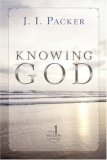
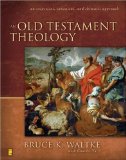



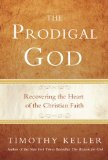
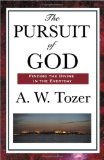
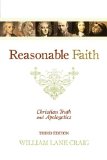

Studying a Book of the Bible: Ezekiel as Test Case
Posted in Ezekiel, tagged Biblical Training, commentaries, Daniel Block, Douglas Stuart, exegesis, Ezekiel, hermeneutics, Iain Duguid, John Goldingay, theology on Monday, March 15, 2010| 17 Comments »
In the comments of a previous post, Marcus asked what books I’m using in my study of Ezekiel. For those who know me, it doesn’t take much to get me talking about books, especially commentaries. But I thought I’d use this as an opportunity to stress how I use commentaries and other resources in the process of studying a book of the Bible. Obviously commentaries serve well as resevoirs for “quick answers,” but are even better used over a long period of study.
I want to put all of this in context. Sometime in the fall, I decided to embark on a prolonged study in the Book of Ezekiel. I picked Ezekiel for a few reasons: of the major prophets, it’s the one I know the least; I’ve often found it confusing; I wanted to justify my purchase of Daniel Block’s two volume commentary; and Ian Boxall’s commentary on Revelation convinced me that Ezekiel was important to John’s Revelation.
So here are the steps I am taking in my study of Ezekiel. Mind you, I’m actually only 7 chapters in; I’m moving intentionally slow (and I took a bit of a break when my computer died). I also don’t want to give the impression that I really think of studying the Bible in a mechanical, step-by-step process. The crucial thing about these steps is that I never jump forward, but I may move backward. That is, just because I move on to a new step doesn’t mean I won’t go back and redo a previous one. But I try not to get ahead in the process, for reasons I’ll explain as I go.
The one step I’m leaving out of the list is actually the most important. I pray a lot as I’m studying, through every step. Not only do I pray the words of Scripture (which can be difficult in a book like Ezekiel), but I pray that the Spirit of God give me wisdom as I go. If, after all, He inspired the book, I’d rather seek His insight than anyone else’s.
Read the Text
Sounds obvious, huh? It doesn’t get any more basic and necessary than this. I try to read the entire book every now and then. I read large sections at a time, then narrow down to smaller sections as I see them (chapter divisions in Ezekiel are generally pretty good, though chapters can be grouped together, more on that in a second). I’ve been using the TNIV, though when I start to look at smaller chunks of verses, I compare other translations. For this study, I’ve opted not to do my own translation work, or at least not the entire book. I’ve done that before for other books, and will continue to do so. But, honestly, it would take me far too long to study Ezekiel if I tried to translate the entire thing.
Break Off Natural Sections
As I noted above, chapters can be grouped together to form units. For instance, chapters 1-3 go together, with chapter 1 and chapters 2-3 forming subunits. Chapters 8-11 all go together. And so on. This is something I may adjust as I spend more time in the text, if needed. These sections are the ones I study, so on my computer, there are separate documents for Ezekiel 1-3, 4-7 (4-5 & 6-7 go together), 8-11, etc.
Make a Rough Outline
My outlines are never super detailed, just enough to give me an idea of the flow of a passage. When I broke down the vision of chapter 1 into 3 main parts (Vision of the 4 Living Creatures vv4-14, Vision of the 4 Wheels vv15-21, Vision of the Glory of YHWH vv22-28), it helped me make sense of what was otherwise a mess in my mind. Again, I’m always willing to correct this outline, but I find it a good place to start.
Taking Notes & Asking Questions
Using my outline, I begin to take notes on what I think is important. For example, in chapters 2-3 there is some ambuguity as to the identity of ruach, which can mean breath, wind or S/spirit. I look at the text and come up with my own thoughts, and try to see if there is anything significant to it. I note repeated phrases, of which there are many in Ezekiel (e.g., “then they will know that I am YHWH”). I also write out any questions I have that I may not be able to answer myself, or that I’m unsure of the answer. I was a bit confused by the 390 and 40 day periods in Ezekiel 4, so I made a note to check it out when I hit the commentaries (again, after I tried to come up with possible answers myself). This step can take quite a while.
Theological Reflection
After I do the above (which would be termed “exegesis”), I begin writing out some of my thoughts on what the text teaches about God. There may be a particular phrase that sticks out, an important action, etc. I’m already thinking about this stuff as I’m taking notes, but now I spend more time thinking on it. This is important for two reasons: the Bible teaches us about God (duh) and, in my opinion, the theology of the text is the key to hermeneutics. In other words, if I can determine what a passage is teaching about the unchanging God, I will have a much better shot at faithfully applying a text that is written in a foreign language, to a foreign people living in a foreign world.
Application Ideas
This is where I write out some thoughts on how a text might be preached or taught. I’m consistently going back to this, sometimes weeks after I’ve finished a section. This area is a struggle, especially on the personal level, because I seek to apply it to my life before I go tell anyone else how they should live. The first 3 chapters of Ezekiel really kicked my butt. I was so powerfully struck by the immensity of what Ezekiel experienced, I couldn’t get it off my mind. I remember going out for a run (don’t laugh) and realizing that I had actually been walking around aimlessly for 30 minutes, thinking about Ezekiel’s call. Needless to say, I’ve had the tendency to become consumed with the book.
Anyway, all that to say, applying a text is much harder than many assume, which is probably why Ezekiel doesn’t get preached on very often (unless you opt for “what’s the vision by the Kebar River in your life?”). Maybe somewhere down the road I’ll dive into this even more, but this is already getting long enough.
Using Outside Resources
You’ll notice that this is the last item on this list (yes, we’re at the end). When I was in school, I would always try to do my own exegetical work before I looked at anything else. I would translate, diagram, work on syntax, etc, without looking at BibleWorks (only cheaters use it) or commentaries (or at least I tried, sometimes I’d get stuck and look something up, only to realize I probably could have figured it out myself). In my experience, commentaries work best when you have already thought through a text yourself and are looking for specific insights. Very few commentaries are so well written that you can just pick them up and start reading, gaining incredible wisdom. Doing that virtually guarantees you’ll learn next-to-nothing. But if you know what you’re looking for when you start, you’ll glean much that is useful. I also check out a few other resources, which I’ll give below.
Commentaries
The two Ezekiel commentaries that I am using are Daniel Block’s previously mentioned two volume commentary in the NICOT series and Iain Duguid’s volume in the NIV Application series. Both are outstanding. I was already familiar with Block’s, and had heard good things about Duguid’s. I have to be honest, I was skeptical at first, but am now a huge fan (so is my wife, for what it’s worth). Although his space is limited, especially in comparison to the ginormous Block, he makes the most out of it, even including things missed by Block. Once in a while his practical insights are a bit of a stretch, but I think they’re designed to get the reader thinking rather than suggesting sermon bullet points. If you can’t afford Block, then I strongly recommend Duguid. Even if you can afford Block, I’d strongly recommend Duguid.
Block has pretty much everything you’d want in a commentary. He doesn’t just comment on the text, he interacts well with other writers, brings in helpful historical background and, best of all, takes time to discuss the theological implications of the text. This commentary is worth the hype.
I also own John Taylor’s commentary in the Tyndale series, but haven’t looked at it much. I go back and look through it every so often, but there’s little in there that isn’t already covered by the other two. My wife was using this one until I got Duguid for Christmas. If I were living near a library that carried commentaries, I’d probably look at Allen, Zimmerli and Greenberg, but I don’t so I don’t.
Other Books
Every so often I consult a book that isn’t a commentary. I would probably take a look at an OT introduction if I liked any. I’ve poked around Bruce Waltke’s OT Theology to see what he says about Ezekiel, but for the most part, I stick to the commentaries.
Online Classes
Another helpful resource is BiblicalTraining.org, which we’ve plugged multiple times. Douglas Stuart has a lecture on Ezekiel, but it’s only 19 minutes, which is too short for anything more than a basic orientation. On iTunesU, there is an entire prophets class for free taught by John Goldingay at Fuller Seminary. His lecture on Ezekiel comes in close to 80 minutes, so naturally he covers more ground than Stuart. Goldingay is left of where I am, but often has much that is helpful.
Sermons
I’ve mentioned before that Ezekiel is rarely preached on, at least in my circles. I’ve found a few online; you can check out The Gospel Coaliton site for some examples. Like commentaries, I won’t listen to anything until I’m done doing my own work.
——
So there you have it, far more than you ever wanted to know about my process of studying a book of the Bible. This process is always subject to revision, so if you have anything to add, I’d be happy to hear it out. Let me end with this:
The more time I spend in Scripture, the more amazed I am at the treasures contained within. I’ve spent years now studying the Word (and I have the school debt to prove it!), but on a consistent basis I find myself feeling like a novice. It’s humbling to jump back on the bunny slopes, but humility’s definitely a good thing. I had no idea Ezekiel, the book and the prophet, could be so compelling, challenging and God-exalting. Lord help me (literally) if I ever lose the excitement I feel today.
Read Full Post »